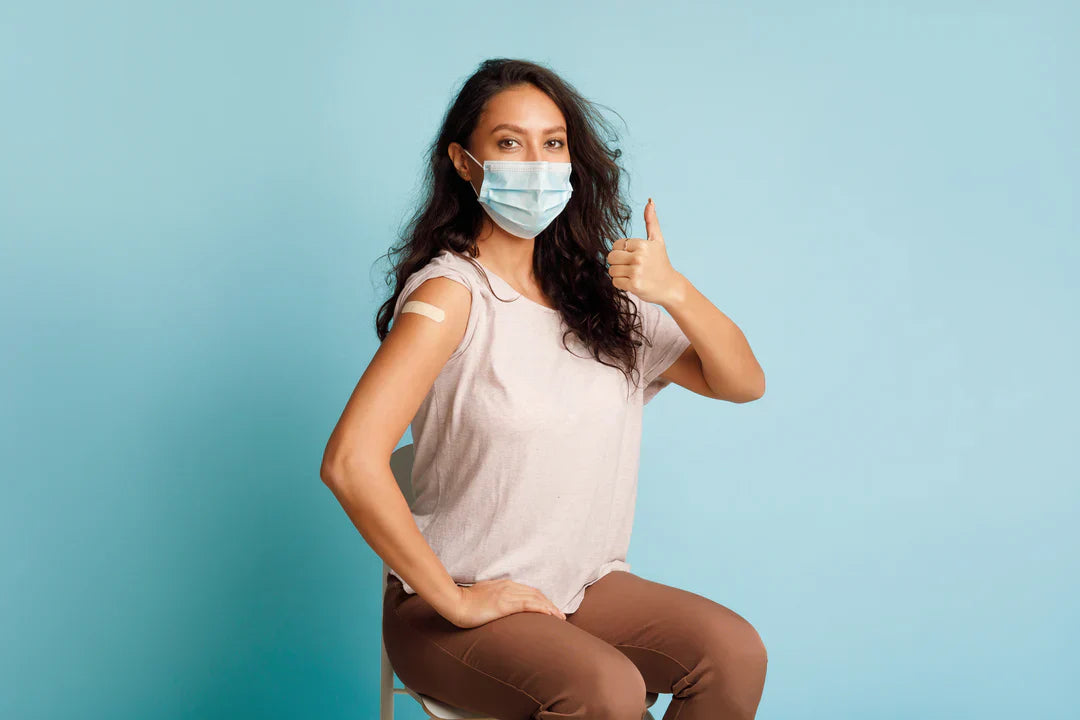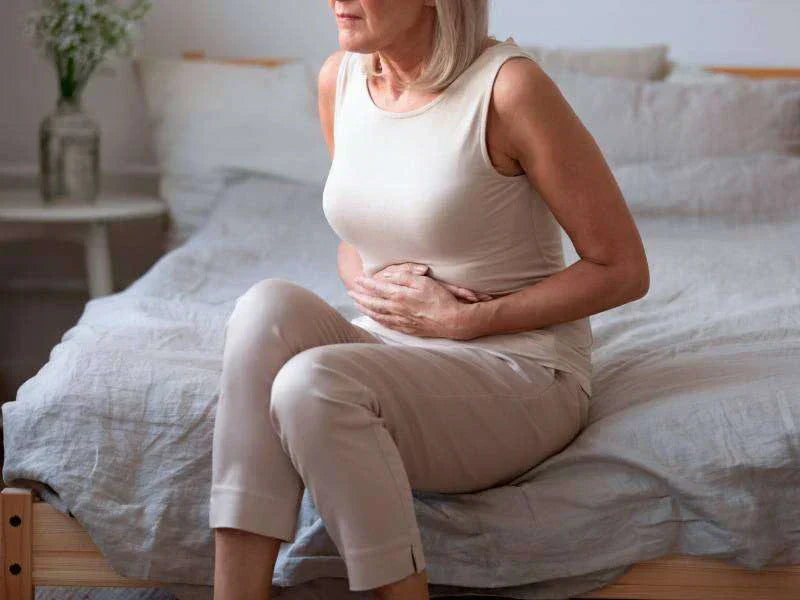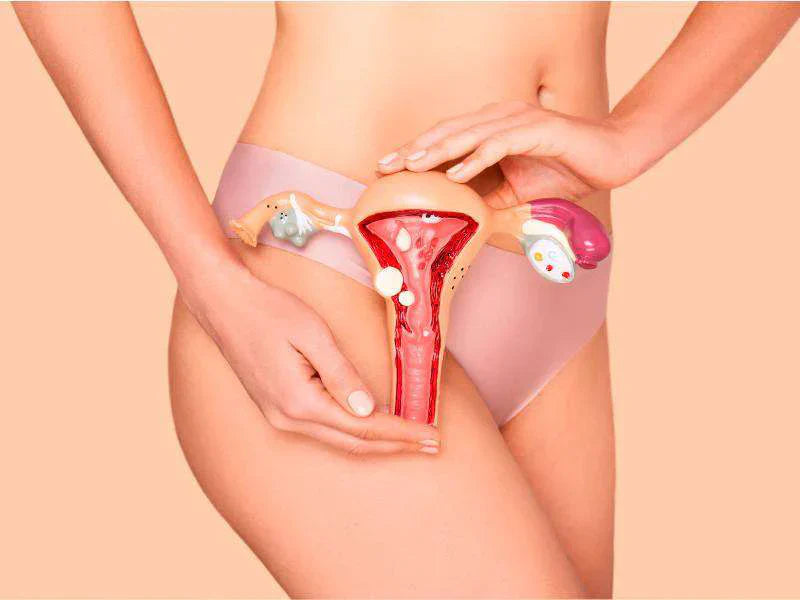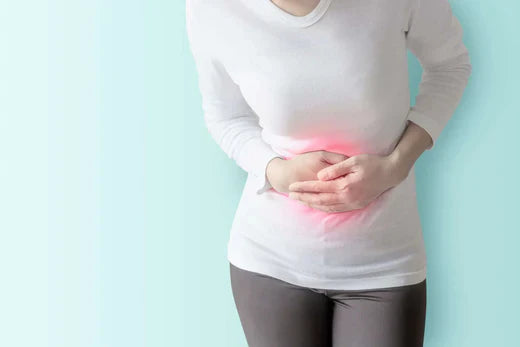Do you want to live a healthy life and reduce your risk of disease? Then you should get vaccinated. Let us talk about the importance of vaccines in adulthood and menopause. As well as their role in preventing certain diseases.
What are vaccines, and how do they work?
A vaccine is also often called an immunisation. It is a preparation that stimulates the immune system's response to certain diseases. They are usually administered through injections, but some are administered orally or with a nasal spray. (1).
These products expose the body to certain bacteria, viruses, and other parts of microorganisms in a controlled and safe way. In this way, they encourage your immune system to create antibodies specific to those microorganisms. Antibodies are the body's essential line of defence against infection. They can last for years or even a lifetime. When you have antibodies against a specific bacteria or virus, it is easier for the immune system to recognise it, attack it and eradicate it from the body. (2).
Hence the importance of vaccines, as they are a powerful weapon for disease prevention. (2).
Importance of vaccines throughout life

According to the NHS (2), vaccines prevent up to three million deaths a year. In addition, many previously disabling, or even fatal diseases have been brought under control and almost eradicated through vaccination. Examples of these are polio, measles, diphtheria, and tetanus (2).
It is therefore recommended that children be immunised to strengthen their immune system and reduce the risk of infections. However, the importance of vaccines is not limited to childhood; adults also require vaccinations. Some of these can be given in the menopausal or post-menopausal period, and others, such as the influenza vaccine, are recommended throughout life. In addition, people at risk, such as people with diabetes or heart or lung disease, require additional care (2,3).
Immunisations protect you from certain diseases and protect your community. If most people are vaccinated, you prevent the spread of diseases to those who cannot be vaccinated. This is the case for those who are sick or have a very weak immune system. (2).
Compliance with the vaccination schedule is an essential action for a healthy lifestyle in menopause. Along with other healthy habits such as good rest, physical exercise, a balanced diet, and the consumption of omega 3 6 9, for example. All this contributes to general health care, such as preventing sleep disorders and the development of certain diseases.
Importance of vaccines in adults: which ones are indicated?
These are the immunisations you should have during menopause (3,4,5,6):
-
Influenza vaccine: contributes to the prevention of flu caused by the influenza virus. It is recommended to be given at age 50 and repeated annually.
-
Immunisation against pneumococcus: it helps prevent pneumonia caused by pneumococcus bacteria and the complications associated with this infection. It is recommended at age 65.
-
Shingles (herpes zoster) vaccine. Recommended for use at age 70.
People who have a risk of disease in addition to menopause may need other vaccinations. For example, those who have (3):
-
Liver diseases need to be immunised against hepatitis A or B virus.
-
Problems with the spleen or weakened immune system may necessitate immunisations against the different forms of meningitis.
Security and importance of vaccines
In general, vaccines are very safe. They must undergo strict controls during manufacture to certify that they are safe before they are given to children and adults. In addition, most of them have been on the market for years and their effects have been extensively studied. (2).
It is much safer for your body to be exposed to the micro-organisms through vaccines than by contracting the infection. This is because many of these microorganisms are dead, non-infectious, or very few are in the formula. (2).
However, just because they are safe does not mean that they are free of side effects. Adverse effects may include (2):
-
Swelling, redness or induration at the injection site.
-
Fever or general malaise.
-
Mild, moderate, or severe allergic reactions.
The importance of vaccines is not limited to children, there are also immunisations that should be given during menopause and post-menopause. We invite you to keep your immunisations up to date and consult your doctor if you require any special immunisations. Remember that vaccines are a battle weapon in disease prevention.
Bibliographical references
-
CDC. Immunization: The Basics. 1 September 2021 [accessed 1 December 2022] Available from: https://www.cdc.gov/vaccines/vac-gen/imz-basics.htm
-
NHS. Why vaccination is safe and important. 30 July 2019. [accessed 1 December 2022] Available from: https://www.nhs.uk/conditions/vaccinations/why-vaccination-is-safe-and-important/
-
NHS. NHS vaccinations and when to have them. 30 July 2019. [accessed 1 December 2022] Available from: https://www.nhs.uk/conditions/vaccinations/nhs-vaccinations-and-when-to-have-them/
-
NHS. Flu vaccine. 30 July 2019. [accessed 1 December 2022] Available from: https://www.nhs.uk/conditions/vaccinations/flu-influenza-vaccine/
-
NHS. Pneumococcal vaccine overview. 14 February 2019. [accessed 1 December 2022] Available from: https://www.nhs.uk/conditions/vaccinations/pneumococcal-vaccination/
-
NHS. Shingles vaccine overview. 31 August 2021. [accessed 1 December 2022] Available from: https://www.nhs.uk/conditions/vaccinations/shingles-vaccination/
You May Also Like

JOIN US AND GET 10% OFF
Sign up to our newsletter to access free resources, advice and support.















